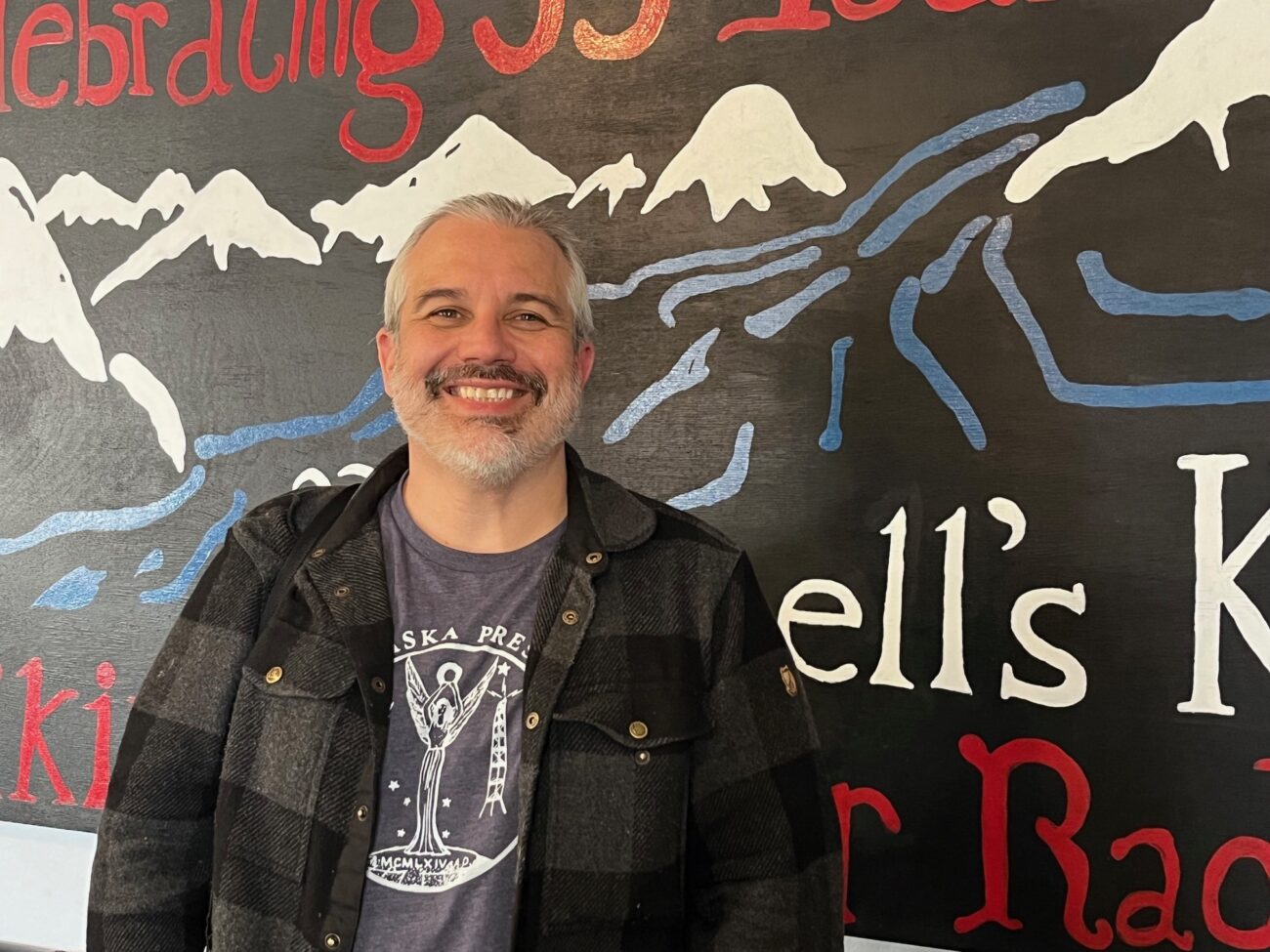
Award-winning Alaska journalist Kyle Hopkins knew early on that journalism was his thing. Moreso, he knew he had an affinity with journalists and wanted to surround himself with them.
“I like being around them and talking to them,” he said. “They’re just funny and smart, and like feisty.”
After producing daily stories for close to 15 years at Anchorage Daily News, Hopkins shifted his focus towards why things happen and why they don’t get fixed. He found that this was relevant with sexual violence issues.
Sexual violence in Alaska runs high. Close to half of women in the state have experienced it. Additionally, one in three Alaska Native adults are survivors of intimate partner violence. Alaska also has the fourth highest number of missing and murdered Indigenous cases in the country. New Mexico, Washington and Arizona rank as the majority with MMIP cases.
In collaboration with the Wrangell Cooperative Association for Missing and Murdered Indigenous Awareness Day on May 5, Hopkins will speak in Wrangell this weekend. He’ll share his experience as a journalist and reporting on sexual violence. He will also speak to students at Wrangell High School on Friday, May 3 about storytelling and why its valuable.
Public safety and criminal justice failures
Hopkins said that a lot of public safety and criminal justice failures allow people to get away with sexual assault in Alaska, including murder.
“In cases that, in my opinion, could be solved if we had better systems in place, if we had better priorities,” he said.
His early reporting in 2018 turned into the Lawless series published by ProPublica and Alaska Daily News. Hopkins won a 2020 Pulitzer Prize for it.
He said the focus on Lawless was not necessarily the devastating stories on individuals who experienced sexual assault, but more so accountability.
Hopkins said, “How can it be in this day and age that someone goes missing and it’s not found? Or how can it be in 2024 that an Alaskan is murdered in a small community and that no one is held accountable?”
Hopkins was born in Sitka and spent his childhood in Southeast Alaska. He said when he was a kid it was easy to assume adults would fix these types of problems. But now, as an adult, the severe problems still exist. He said journalism can help with that by putting spotlights on the failure of systems, like criminal justice.
He said one of the challenges he faces is that when he puts spotlights on institutions, the doors start to close, like getting interviews and public records.
“I did a story recently in November, about a cold case in Kotzebue,” Hopkins said. “I was following up on questions that I first asked two years prior.”
Hopkins hopes to encourage young people to explore journalism
Although he extensively covered sexual assault issues and Missing and Murdered Indigenous People in Alaska, he said it’s not his role to tell their stories.
“Sometimes it feels a little uncomfortable for me to be like a spokesperson for this type of work,” Hopkins said. “I don’t feel like that’s an appropriate role for me.”
That’s where his other project, Unheard, comes in.
He said he and his team from ProPublica and Alaska Daily News worked with people to tell their own stories in their own words about being sexual assault survivors.
His discomfort in telling other people’s stories is one reason why he speaks with school-aged students about journalism.
“The older I get, the less comfortable I feel telling other people’s stories,” he said. “One way that I’m trying to deal with that feeling is that I’m really interested in talking to schools about it. Like middle school, high school kids about like, ‘Hey, you have a story to tell.'”
He hopes to encourage young people to tell their stories and get into journalism as a career.
Kevin Gadsey, WCA’s domestic violence prevention specialist, mentioned what to expect after Hopkins will speak at Chief Shakes Tribal House in Wrangell for Missing and Murdered Indigenous People’s Day.
“After he shares his experiences and information, we are going to have a ceremony to both remember those who are missing and who had been murdered and lost,” Gadsey said. “But also it’s a way for those who have experienced trauma themselves and in their family.”
Indigenous women have up to 10 times a higher murder rate nationwide, though this might be underestimated since little data exists on MMIP in urban areas.
Kyle Hopkins will speak at Chief Shakes Tribal House in Wrangell at 3p.m. this Sunday. The event is free to the public.













